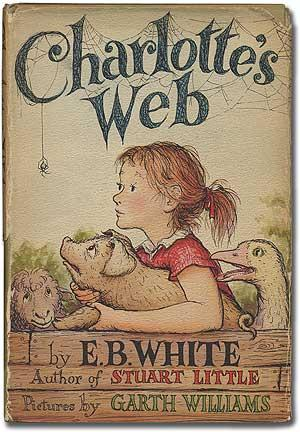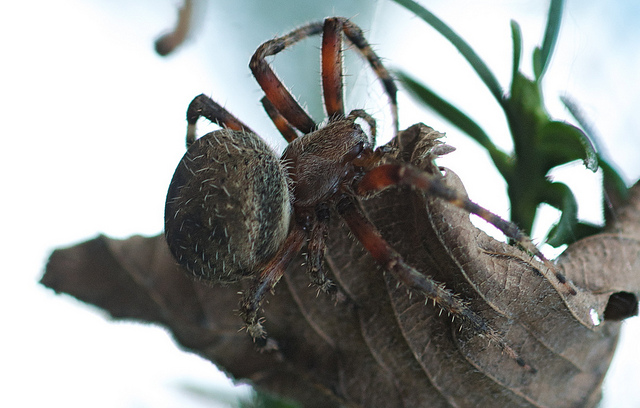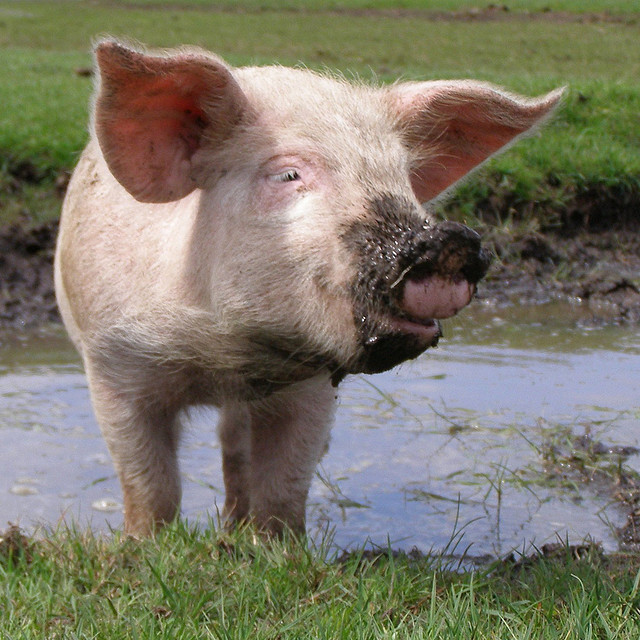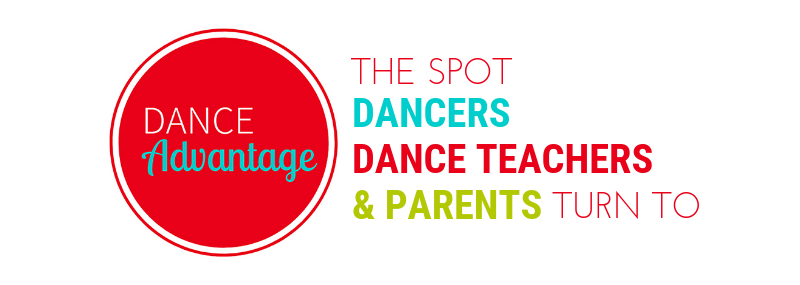Anyone who has ever felt a little emotional (or, outright sobbed) during a telling or re-telling of Charlotte’s Web knows it is a heart-warming yet bittersweet story about a little girl’s love of animals and also the friendship between a wise spider and a young pig. But, as Leah Singer writes, “[Charlotte’s Web] is also about words and the difference storytelling can make in people’s lives.”

If you’re not familiar with E.B. White’s classic children’s story, Charlotte’s Web is about a small pig, a runt, in danger of being slaughtered because he is “very small and weak, and . . . will never amount to anything.” A young girl named Fern convinces her father to spare the pig, who she names Wilbur. Fern loves and nurtures Wilbur but his life is once again in danger when he is sold to her uncle. It is Charlotte, a barn spider, that ultimately saves Wilbur’s life. Charlotte weaves a series of words into her web–”Some pig.” “Terrific.” “Radiant.” “Humble.”–which the farmers take as signs of Wilbur’s greatness. Word spreads of this remarkable pig and he becomes too famous to kill.
Wilbur is entered into the county fair and, though [SPOILERS ahead] he does not win first prize, he wins a special award for being extraordinary. Knowing that Wilbur is now beloved by all and his life is for certain no longer in danger, Charlotte finally gives in to her own death but not before leaving her egg sac in the care of Wilbur who returns with it to the farm. There, he welcomes and befriends Charlotte’s children and future generations of spiders for years to come.
Through Charlotte, we learn a lot about coaching young dancers to greatness.
When it comes to nurturing champions, Charlotte knows:
That words matter and that the story you tell can save a life.
In the book, Charlotte makes a choice to re-write Wilbur’s story. At first she’s just tricking the minds of gullible humans on behalf of a little pig who is scared and defenseless but Charlotte does see something special in Wilbur. Maybe it’s just that he is willing to see beyond her “bloodthirsty nature” but helping Wilbur gives Charlotte’s life purpose and makes her feel good.
“…by helping you, perhaps I was trying to lift up my life a trifle. Heaven knows anyone’s life can stand a little of that.”.
Where would an “unlikely ballerina” like Misty Copeland be without her first supporters and mentors who chose to see beyond the obstacles of her early life and the color of her skin and instead speak of Misty’s potential to rewrite what could have been her story? Not all dancers are as famous as Misty but I’d guarantee that, if asked, every single person in the dance world could give you the names of teachers whose words changed their lives.

That ordinary dancers become extraordinary the same way gifted ones do.
Wilbur blushed. “But I’m not terrific, Charlotte. I’m just about average for a pig.”
“You’re terrific as far as I’m concerned,” replied Charlotte, sweetly, “and that’s what counts.
Wilbur doesn’t start out as anything special. He is a common runt and even he doesn’t believe he is anything more. It takes time, hard work, and Charlotte’s steadfast belief in him but, by the end, he truly is a magnificent, “completely out of the ordinary” specimen of a pig. Wilbur can barely handle all the praise he receives.
I don’t think Charlotte foresees all that Wilbur eventually accomplishes but that doesn’t matter. She always plans her messages one word at a time. Who can truly predict which students will go on in dance, and which won’t? Who knows what the result of your influence will be? A perfectly average dance student becomes exceptional the same way a gifted student does–one step at a time.
That the way a student feels is as important as their skill.
Charlotte loves Wilbur but she’s not always overflowing with praise. She sees his limitations clearly. While searching for her next word, Charlotte asks Wilbur to run, and jump, and flip. He exhausts himself doing everything she asks. When he’s finished, Charlotte concludes…
“I’m not sure Wilbur’s action is exactly radiant, but it’s interesting.”
“Actually,” said Wilbur, “I feel radiant.”
“Do you?” said Charlotte, looking at him with affection. “Well, you’re a good little pig, and radiant you shall be.
Charlotte acknowledges that Wilbur is eager and willing and realizes that a pig’s natural abilities aren’t everything. Not to mention, they are completely different from her own abilities. She sees that the way Wilbur feels about himself is absolutely essential in helping him become all that he can be. Later, people take notice of the “interesting” things about Wilbur.
Your students are their own kind of dancer. They need you to guide them and challenge them even though they will eventually go their own way. Positive praise when your students show enthusiasm and effort builds their confidence but so does validating them. Show them that their feelings and thoughts–who they are on the inside–matter.
That people (and pigs) live up to their descriptions.
“When Charlotte’s web said SOME PIG, Wilbur had tried hard to look like some pig. When Charlotte’s web said TERRIFIC, Wilbur had tried to look terrific. And now that the web said RADIANT, he did everything possible to make himself glow.”
Over time Wilbur transforms into the pig that Charlotte says he is. He’s always been a sweet little pig but, according to the story’s narrator, “good food and regular hours were showing results.” Wilbur goes from a weak, lonely, uncertain runt that no one wanted to a healthy, strong, and confident pig that “any man would be proud of.”
Saying what you want to see is a concept that works for work ethic as well as pointed toes. It’s not that you need to make things up about your dancers that aren’t true. When you have a seed, you water it because you know the potential for growth is there if you do. As you work with your students, regularly sprinkle them with recognition of the growing potential you see in them.

That encouraging humility brings handsome results.
“Wilbur was modest; fame did not spoil him.”
The other animals worry that all the attention might go to Wilbur’s head but it doesn’t. In the back of his mind, he knows the fate he’s escaped–it haunts his dreams a little–and he knows he would not have gotten far without Charlotte. “During the day he is happy and confident” but, when faced with his biggest challenge, he still wants Charlotte with him
When they attend the county fair, Wilbur’s owner has a special crate that says “Zuckerman’s Famous Pig” in gold letters and his wife fusses to make Wilbur look good with a buttermilk bath and clean straw. They believe his fame and looks will win him the prize. But Charlotte sizes up the competition and though there’s a bigger pig, she knows exactly what Wilbur’s got that that pig doesn’t–she writes HUMBLE above Wilbur’s pen. Charlotte’s word is true and it serves Wilbur well. Everyone has something nice to say about it him.
As a mentor to your students, you can help them see their best qualities. The rest of the world tells your students that being a winner means you must be “Instafamous” or look and perform better than everyone else. But when you let dancers know with your words and actions that humility matters, they win.
That the work you do every day is a miracle!
Though it is remarkable that Charlotte is able to understand and weave human words into her web, Fern’s uncle fails to see it as anything special. Fern’s aunt hints at the idea that perhaps it is the spider that is extraordinary and not the pig but Charlotte’s role is soon forgotten in all the excitement over Wilbur. That’s okay by Charlotte. She cares only that her plan works and that Wilbur is saved. When Fern’s mother becomes concerned her daughter is spending too much time talking to animals, she consults the family doctor. They end up chatting about the writing in Charlotte’s web and he has this to say:
“When the words appeared, everyone said they were a miracle. But nobody pointed out that the web itself is a miracle.”
“What’s miraculous about a spider’s web?” said Mrs. Arable. “I don’t see why you say a web is a miracle – it’s just a web.”
“Ever try to spin one?” asked Dr. Dorian.
Like a spider’s web, not everyone appreciates everything that goes into teaching dancers and the “ordinary miracles” you perform every day. Your reward isn’t the point or the purpose for doing what you do but when they do come, the rare moments of recognition are all the sweeter.

That you are never too small to leave a legacy.
Though she is small, Charlotte works extra hard to do her very best on Wilbur’s behalf and Wilbur never forgets her work and sacrifice. No matter the lengths you’ve gone to support your dancers, no matter how intricate the web you’ve woven, like Charlotte, you probably fade into the background. But your students remember and, just as Wilbur carries Charlotte’s egg sac back to the farm, your students carry forward the things you’ve taught them. They spread them, share them, and often pass them to future generations.
Your students may not become famous or win in every competition but if you help them as Charlotte helped Wilbur, they become winners–ordinary dancers who succeed, who go on to live lives that are remarkable in their own way and, in the process, create your legacy as a teacher and dance educator.
Nichelle Suzanne is a writer specializing in dance and online content. She is also a dance instructor with over 20 years experience teaching in dance studios, community programs, and colleges. She began Dance Advantage in 2008, equipped with a passion for movement education and an intuitive sense that a blog could bring dancers together. As a Houston-based dance writer, Nichelle covers dance performance for Dance Source Houston, Arts+Culture Texas, and other publications. She is a leader in social media within the dance community and has presented on blogging for dance organizations, including Dance/USA. Nichelle provides web consulting and writing services for dancers, dance schools and studios, and those beyond the dance world. Read Nichelle’s posts.

